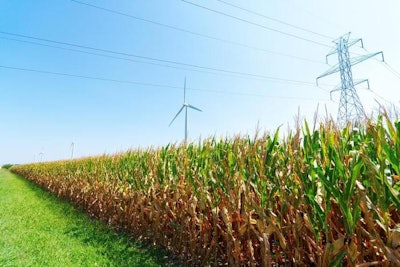
Agriculture is an always changing industry. Farmers and livestock producers are often faced with new products, innovative technology, policy adjustments, changing markets, uncontrollable weather and now some question the possibility and long-term impact of climate change.
Nick Goeser, National Corn Growers Association’s (NCGA) vice president of production and sustainability, notes there is significant data indicating some key weather and climate factors have indeed changed in many corn growing states across the United States, and with the shift comes new challenges as well as real opportunities.
Climate Task Force
Identifying and assessing these challenges and opportunities and crafting appropriate next steps is the driving force behind the Climate Task Force formed by NCGA a year ago. The multidisciplinary group – made up of farmers and representatives of NGOs, input suppliers, processors, food companies, retailers, academia and state corn association staff – recently wrapped up its initial charter of developing recommendations for the NCGA Board.
“The group put in long hours evaluating and exploring the options and opportunities to address our changing global climate in a manner that adds value for corn producers, optimizes productivity and improves environmental sustainability,” Goeser said. “We came away with innovative recommendations to adapt to changes we haven’t seen before.”
Ultimately, it’s about optimal yields, environmental enhancement and economic resilience, Goeser notes, because wetter than normal springs affect the ability to apply fertilizer and plant the crop during an ideal window. Also, increases in nighttime temperatures can be disruptive of key plant development stages like pollination.
“The multidisciplinary team looked beyond pure agronomic challenges and also discussed possible policy and economic changes related to climate and greenhouse gas reductions,” Goeser said. “NCGA is always looking to identify and expand educational tools and opportunities for our grower members, and access to carbon markets to improve environmental, economic and social outcomes presents this kind of opportunity.”
Moving forward
The NCGA board will review the recommendations coming from the Task Force in June and two key messages will be presented.
The first idea is based off the idea that there is significant opportunity for more formal and consistent communications and engagement with allied industry partners, food companies, retailers, university scientists, environmental interests and economists.
The second is that there is strong interest in continued collaboration on climate change related to additional research, communications and supply chain engagement to support informed decision making.















